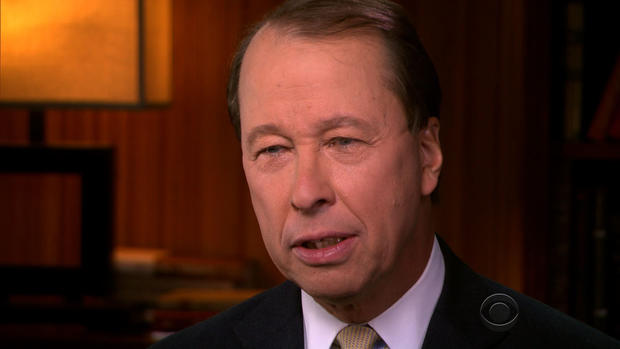Top exec warns of "Armageddon" if U.S. defaults on debt
(CBS News) NEW YORK - One of America's leading investors says Washington is risking disaster in the debt crisis.
Tony James is president and chief operating officer of the Blackstone Group, which manages $230 billion for public and corporate pension funds.
We spoke with James a short while ago and asked about the Thursday deadline when, unless something is done to extend the debt ceiling, the Treasury Department says it will not be able to pay off America's bills.
SCOTT PELLEY: If a deal isn't done by the 17th, what are the consequences?
TONY JAMES: Well, I think there's some cushion after the 17th. I would think that most people think at least until the beginning of November, you are OK. If there's no deal and the Treasury stops paying people, then it's Armageddon.
PELLEY: Armageddon? What do you mean? Paint the picture for me.
JAMES: OK. I think the stock market would drop -- would plummet. You'd have a default (on) Treasury securities which would cause margin calls. The financial system could freeze up.
PELLEY: Freeze up in the way that we saw in 2008?
JAMES: Yes.
PELLEY: That's a pretty dire prediction.
JAMES: Very dire.
PELLEY: Do you think the politicians in Washington understand what you're talking about?
JAMES: I don't think they do. I think they think that those that are willing to go to the brink think smaller government is better, and if there are less payments, there's less payments. I don't think they understand the damage it's doing to American perception abroad.
Reid "very optimistic" deal can be reachedAmex CEO: "If the U.S. defaults, the system literally unwinds"
Debt ceiling deadline is biggest threat to U.S. economy
PELLEY: Is there going to be panic after the 17th?
JAMES: No, I don't think there's panic until the government stops paying people. Once that happens, yes, panic will ensue.
PELLEY: In an op-ed piece that you wrote for The Wall Street Journal, you likened what's happening in Washington to Russian roulette. And you said you couldn't figure out why they were doing it. Why do you say that?
JAMES: Because they're playing with a lot of risk for very small or no gain. They're spinning the cylinder on the gun. And more often than not, they'll be fine. We'll work out some kind of system, even if we go to the brink. But there's that one in whatever chance that-that's not the case. And then the consequences are very, very severe.

